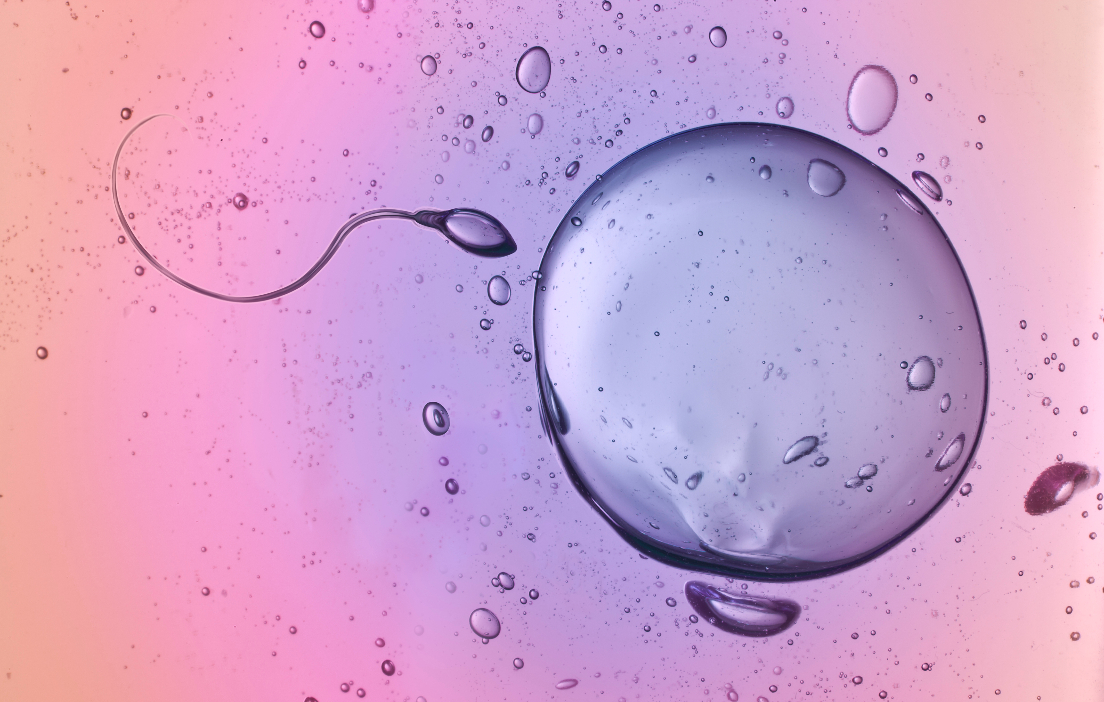
Fertility Diagnostic
One in six couples in Switzerland is affected by infertility in some form or another. In around 40% of cases, the issue lies with the woman, in another 40% with the man, and in 20% the cause can be attributed to some form of sterility in both parties. As is explained to women by their gynaecologists, it is recommended that men also undergo an andrological examination.
The causes of male subfertility are many and varied. It may be the consequence of a genetic condition, such as Klinefelter syndrome or Y-chromosome deletions, or acquired, for example following testicular inflammation or torsion, sexually transmitted infection, or as a result of an undescended testicle. Testicular varicose veins (varicoceles) can often also be responsible for impaired fertility.
Range of analyses
- Spermiogram
- Microbiology (semen culture)
- Post-vasectomy test
Spermiogram
The most common cause of male infertility is an abnormal spermiogram.
A spermiogram is used to analyse sperm concentration, total sperm count, vitality, motility, leukocytes, autoantibodies and sperm morphology. The findings of this examination are interpreted in accordance with WHO guidelines and information about the patient’s medical history.
Microbiology (semen culture)
In addition to constitutional functional disorders, psychosocial anomalies, lifestyle, environmental influences and hormonal dysfunctions, sexually transmitted infections in particular are a common reason why some couples are unable to conceive. It is recommended that microbiological testing, comprising the examinations listed below, also be performed routinely when a patient undergoes a spermiogram:
- General bacteriology
- Mycoplasma / ureaplasma
- Specific testing for chlamydia trachomatis (PCR)
Post-vasectomy test
Unless prescribed otherwise by a doctor, we recommend that patients wait until around twelve weeks after their operation at the earliest, and until they have ejaculated at least 30 times, before undergoing a post-vasectomy test.
The ejaculate is analysed both in its original form and after centrifugation. If sperm can still be detected, a vitality test and concentration measurement are also performed.
Patients do not need to abstain from sexual intercourse before undergoing a post-vasectomy test and the ejaculate does not need to be handed in immediately after the sample has been taken. You are also not required to arrange an appointment.
Important information for patients!
Please take note of the following information concerning the spermiogram and vasectomy procedures.
Spermiogram
Please arrange a time to submit your sample.
Preparation
You must ejaculate 3-5 days prior to your appointment for ejaculate testing.
Collecting a sample
Empty the entire semen sample directly into the sterile container we have provided and bring it to the laboratory within 45 minutes. If this is not possible, you do have the option of producing a semen sample at the laboratory itself (private room available).
- Clean your hands and penis thoroughly in advance
- Do not use condoms, contraceptives or lubricants!
Vasectomy
Empty the entire semen sample directly into the sterile container we have provided and bring it to the laboratory that same morning.
- Clean your hands and penis thoroughly in advance
- Do not use condoms, contraceptives or lubricants!
- No appointment or abstention period necessary
Useful links and information
Order form fertility, EN (Pdf)
Spermiogramm Broschüre, DE (Pdf)
Infertility-Male
Die Kinderwunsch-Seite
Your contact persons
DrUte Wiedemann
Head Fertility Diagnostic
Deputy Head Molecular Diagnostics
FAMH Medical Genetics

Juan Vilares
Deputy Head Fertility Diagnostic
BMA HF, Team Leader Fertility, training BMA HF
